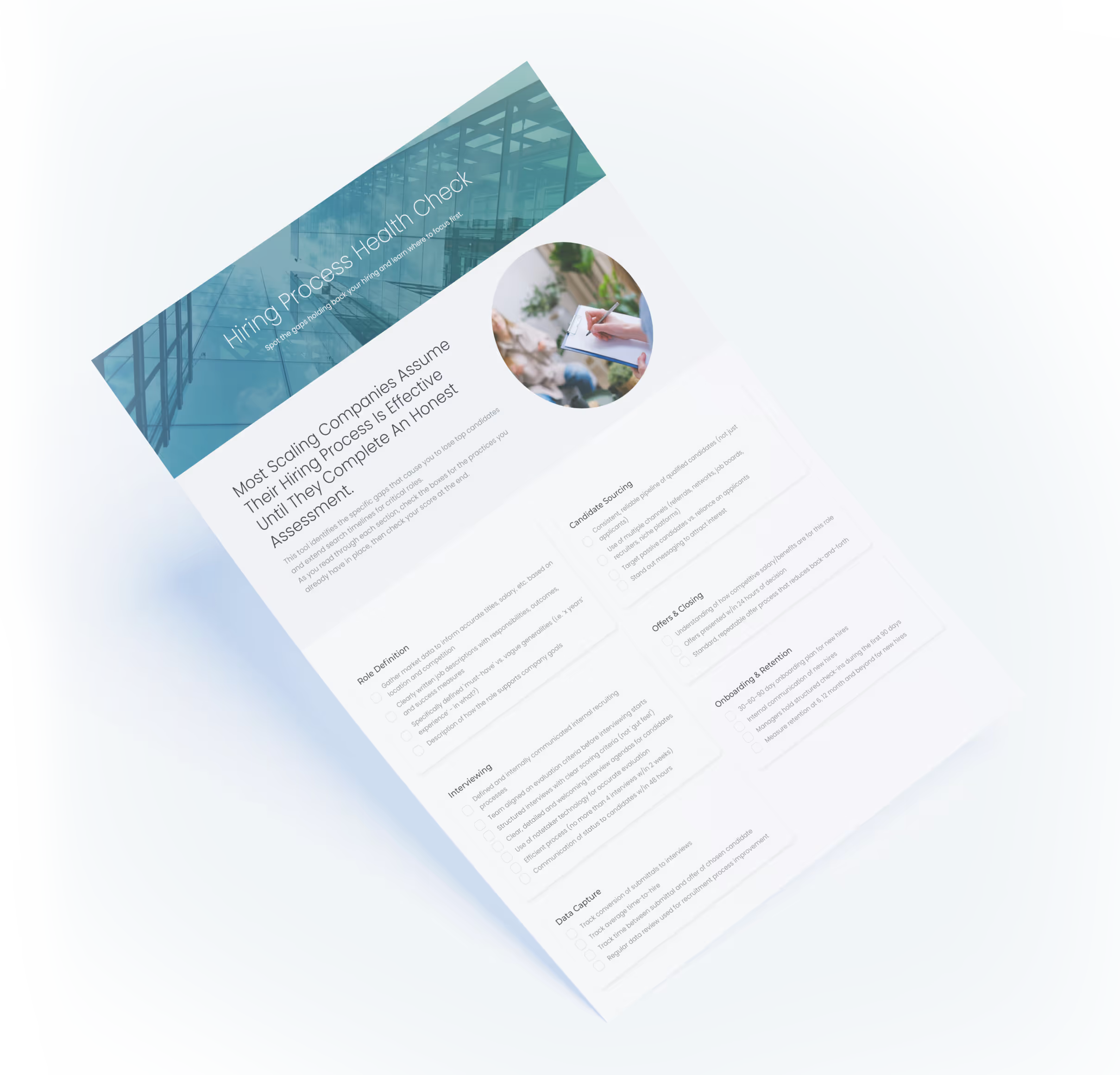Talent Intelligence Brief | Spring 2023

At Inside Talent we’re experts in our field, but sometimes it’s nice to hear from others. We asked a few Talent/People leaders, who we consider to be innovative, independent thinkers, for their thoughts on some current ‘hot topics. We invite your opinions too!
Contributors
Chris Schindler, Senior Solutions Consultant, TiER1 Performance
Lance Tollas, Division Lead - Digital and Creative Services, TEKsystems
Gretchen Rawdon, Principal Consultant and Executive Coach, Lucere Solutions
As an HR professional, can you shed some light on the sudden surge of buzzwords like ‘quiet hiring’, ‘quiet quitting’, ‘rage applying’ and ‘resenteeism’? Are these just old issues with new names or are we ignoring some important issues within the workplace? So, what’s the deal with these new terms?
Overall consensus – These are ongoing challenges that have been around for a long time, but upcoming generations are using different tactics and creating awareness to workplace culture/fairness issues. Companies are noticing!
Chris - There continues to be new ways of referring to ongoing challenges. The term rage-applying makes me chuckle, but I have to say that I give our younger generations kudos for not putting up with unhealthy environments. Good for them! We should thank these young trendsetters because they just might be the ignitors of future healthy cultural changes.
Lance - All new buzzwords tied to conditions that have been in existence for a long time. 80:20 rule. Spiffs, commissions, performance bonuses, hiring bonuses still happen. But I guess they now need to be “quiet” in an effort to not offend another employee who is underperforming?
Gretchen - These issues have been around for a long time. What’s different is that [instead of voicing their issues in the office] many workers are doing it through posts and other social media actions outside of their workplace. Companies are (finally!) realizing that how they treat their employees is critical to the success of the business.
AI is an increasingly popular subject in the realm of talent acquisition, as it has the potential to eliminate bias, screen candidates, and write job descriptions, however it can also produce some not-so-great results. In your experience or opinion, where do you believe AI can be most impactful and why?
Overall consensus – Technology is cool! But caution ahead – people still need to connect and interact, so we do not lose that critical human touch.
Chris - In general, I think technology is miraculous. Technology, including AI, is a helpful tool, but let’s not overlook the most important tool - people.
Lance - It can be a helpful starting point. At some point a human needs to talk with another human to vet and prove out what is real vs what is exaggerated/false.
Gretchen - Robots are really taking over the world. It’s been happening while many folks haven’t been paying attention. Or they are only paying attention to the ways AI makes their lives easier and more convenient—and have been totally ignoring the ways in which AI can wreak havoc. As with many things, humans still have ultimate responsibility in how AI is programmed, fed, and taught. Unfortunately, there are many bad actors in the world (and in Hollywood too!) and we all need to assume that they will do bad things. If the possible bad outcomes outweigh the good ones, perhaps it’s not the right application of AI, regardless of how much easier it may make various aspects of the process for our TA colleagues.
As the great workspace debate as to where to set up shop rages on with no end in sight, who decides which arrangement is best? What are your musings on this ongoing debate?
Overall consensus – Options people! We like options! There is no right way to do work anymore.
Chris - We - meaning the general generic we – live our lives like there is a best way to do things. We can also agree that we are not going back to “normal.” Normal is a façade. The bottom line is that one approach does not fit everyone’s needs. But, if you want engaged, productive, and energized employees, be curious, learn about them as people who have lives and a purpose beyond the work they do for your company. When employees are allowed to bring their whole selves to work, they will move mountains for you.
Lance - It will remain ongoing and fluid. Sure, technologies are better positioned to support remote. But words like trust, micromanagement, human nature, team camaraderie, teaching also come into play. Supply and demand at any given time, will suggest how far the pendulum swings in full remote to full onsite to hybrid…
Gretchen - Well the global pandemic has really opened a big can of worms on this one! Norms have been smashed, false assumptions called out, traditionalists called old and out of touch. Many leaders want to put this debate back in the bottle and return to the way it was. Many workers are voting with their feet). Ultimately the “best arrangement” really depends on the work to be done and the locations of the people doing it. There is not a one-stop solution for this question; it needs to be determined based on all these critical factors along with the company’s desired outcomes and employee value proposition.
Get Your FREE Hiring Process Health Checklist

